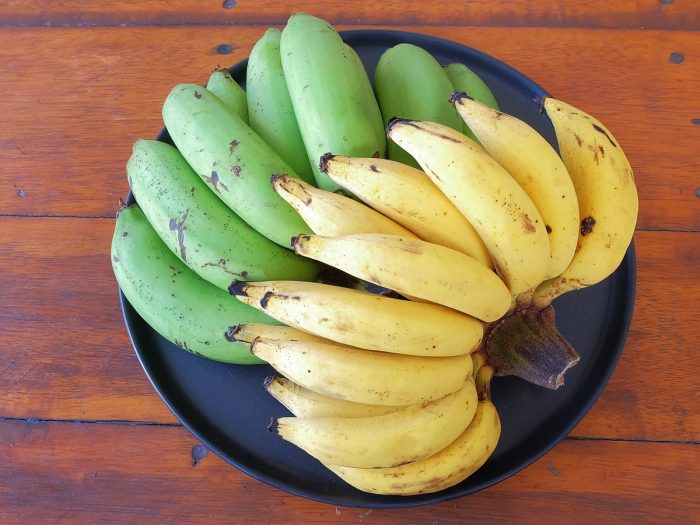Many people around the world have wondered – are bananas fruits? – and with good reason, since they are unique in many ways.
Are Bananas Fruits, Vegetables or Herbs?
Although people have argued that bananas are vegetables because they lack seeds, that isn’t actually true. Bananas that are commercially grown and distributed around the world are sterile, so their seeds are significantly reduced in size. The small brown or black specks you see in the middle of the banana are the immature seeds. These bananas have been specifically bred not to have seeds since banana plants in the wild have large seeds that make it difficult to eat the fruit. [1]
So, clearly, bananas are not vegetables, but are bananas fruits? Or are they herbs? Most people would immediately argue that bananas are fruits, but as it turns out, the distinction of a fruit versus an herb is based partially on the type of stem the plant contains. Although we refer to the plant where bananas grow as a banana tree, that isn’t an accurate distinction. Banana plants are actually herbaceous plants, and their stems do not contain any wood tissue. [2]

Ripe vs unripe bananas Photo Credit: Shutterstock
Since the classification of foods as vegetables, fruits, and herbs are a bit confusing, and certain foods exist in a grey area between accurate categorizations, it is generally agreed upon that bananas are both fruits and herbs. Basically, the botanical definition of a fruit makes bananas a fruit, but the botanical definition of an herb makes a banana plant herbaceous.
